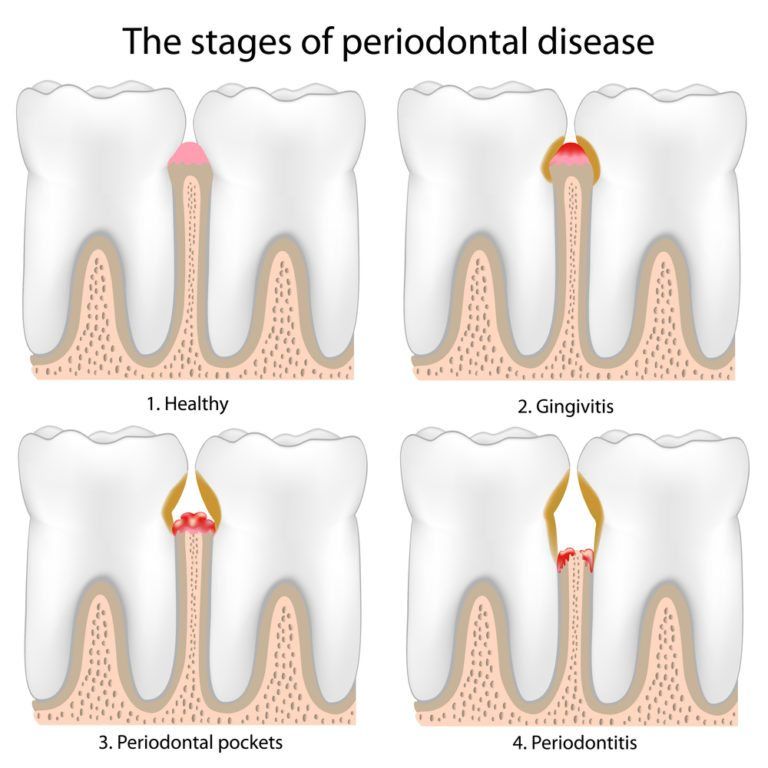Signs & Symptoms of Periodontal Disease

Periodontal disease โ also known as gingivitis and periodontitis โ is most easily identified by the visible symptoms it causes as it progresses. In its beginning stages, a periodontal disease often causes no symptoms at all, making it difficult for the average person to notice. With time, bacteria begin causing inflammation in the gums, which may result in reddening or gums that are tender, swollen and easily bleed. As bacteria continue to proliferate, the teeth may begin to appear longer due to a receding gum line. Eventually, pockets may begin to form between the gums and teeth, which can lead to loosened teeth or total tooth loss. Other symptoms of periodontal disease may include chronic bad breath and mouth sores.
Did you know?
Periodontal disease is a serious oral health problem that affects nearly half of American adults. It is easily treated in its earliest stages, although many people do not know they have it until symptoms appear โ often not until it has progressed to moderate or severe stages that require more complex treatments. The most effective way of finding and preventing periodontal disease is by adopting good oral hygiene and attending periodic dental cleanings and exams.
Frequently Asked Questions
How do I know if I have periodontal disease?
Only a dentist can diagnose periodontal disease. If you are suffering with any of the symptoms listed above, schedule a dental exam immediately to find out if you need periodontal treatment. If you are symptom-free, you still need to visit your dentist twice yearly for an exam.
What will happen if I am diagnosed with a periodontal disease?
You may be referred to a periodontist who can evaluate the severity of your condition and formulate a treatment plan that is best for you. Treatments vary according to the type of periodontal disease you have and how far it has progressed, although the goal of any periodontist is to provide the most effective and conservative treatment possible.
How can I prevent periodontal disease from returning in the future?
Once you have had periodontal disease, you are more likely to develop the condition again. However, you can help prevent recurrences by brushing and flossing after every meal and snack, avoiding tobacco products, adopting a healthy and nutritious diet, and attending frequent dental exams and cleanings as recommended by your dentist.
